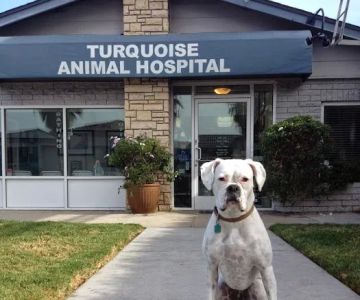What is Veterinary Surgery? Understanding Animal Surgical Procedures
As a pet owner or animal lover, there may come a time when you need to understand veterinary surgery. Whether it's routine, emergency, or specialized surgery, knowing what it entails can help ease any concerns you might have. So, what is veterinary surgery, and how is it different from human surgery? In this article, I’ll take you through the basics of veterinary surgery, including the types of procedures commonly performed, why they are necessary, and what to expect if your pet needs surgery.
1. Understanding Veterinary Surgery
Veterinary surgery refers to surgical procedures performed on animals to treat diseases, injuries, or conditions that require medical intervention. Much like human surgery, these procedures are conducted by highly trained professionals—veterinary surgeons—who specialize in the surgical care of animals. The goal of veterinary surgery is to restore health, improve the quality of life, and in some cases, save the lives of animals.
There are a wide range of surgeries that a veterinary surgeon may perform, ranging from routine procedures like spaying and neutering to more complex surgeries like orthopedic procedures or cancer removal. The veterinary surgery process involves careful planning, anesthesia, and post-operative care to ensure the animal’s recovery.
2. Types of Veterinary Surgery
Veterinary surgery can be classified into different categories, depending on the nature of the condition being treated and the complexity of the procedure. Let’s explore some of the common types of veterinary surgery:
- Orthopedic Surgery: This involves surgeries related to bones and joints. For example, a dog with a torn ACL might undergo surgery to repair the ligament. Similarly, cats and dogs that suffer fractures or hip dysplasia may require orthopedic surgery to restore mobility.
- Soft Tissue Surgery: This is performed on the skin, muscles, organs, and other soft tissues in an animal’s body. Common examples include spaying or neutering, tumor removal, and surgery for gastrointestinal blockages.
- Dental Surgery: Just like humans, animals can develop dental issues that require surgical intervention. Procedures such as tooth extractions or surgery to remove oral tumors are part of veterinary dental surgery.
- Ophthalmic Surgery: Animals can also suffer from eye conditions that require surgical correction. These can include cataract removal, eyelid surgeries, or surgeries to treat injuries to the eye.
- Emergency Surgery: In some cases, animals may require immediate surgery following an accident or trauma, such as a car accident or being attacked by another animal. Emergency surgeries might include wound repair, organ repair, or internal bleeding management.
3. Why is Veterinary Surgery Necessary?
Veterinary surgery is necessary for various reasons, and it plays a crucial role in saving lives and improving the health of pets and animals. Some of the reasons an animal might require surgery include:
3.1 Injury or Trauma
Animals that suffer accidents or trauma, such as being hit by a car or falling, may require surgery to repair broken bones, internal injuries, or wounds. Immediate surgical intervention can save an animal’s life and restore its health.
3.2 Disease or Conditions
In some cases, surgery is necessary to remove tumors, cysts, or infected tissues. Additionally, animals suffering from gastrointestinal obstructions, bladder stones, or certain heart conditions may require surgical procedures to alleviate pain and improve their condition.
3.3 Preventive Care
Surgical procedures such as spaying and neutering are often performed to prevent unwanted pregnancies, reduce the risk of certain cancers, and control pet populations. These are common procedures that many pet owners opt for to ensure the long-term health of their pets.
4. What to Expect Before, During, and After Veterinary Surgery
If your pet requires surgery, it's natural to feel concerned about the process. Let’s walk through the steps of what you can expect during veterinary surgery.
4.1 Pre-Surgery Preparations
Before the surgery, your veterinarian will perform a thorough examination and may order diagnostic tests, such as blood work or X-rays, to assess your pet’s health and ensure they’re fit for surgery. Depending on the type of surgery, your pet will likely be required to fast for a period before the procedure. Your vet will also discuss anesthesia options and the risks involved.
4.2 The Surgery Itself
During the surgery, your pet will be given anesthesia to ensure they are unconscious and pain-free throughout the procedure. The surgeon will carefully perform the necessary surgical steps to address the issue at hand. Depending on the procedure, the surgery could be relatively quick or take several hours.
4.3 Post-Operative Care
After surgery, your pet will be closely monitored in a recovery area until they wake up from anesthesia. Depending on the type of surgery, your veterinarian will provide instructions for post-operative care, including pain management, medication, and dietary restrictions. Follow-up appointments may be necessary to ensure proper healing and monitor for complications.
5. Real-Life Story: The Importance of Veterinary Surgery
Let me share a story that highlights the importance of veterinary surgery. My friend’s dog, Max, was a golden retriever who loved to run and play. One day, while chasing a ball, Max suddenly started limping and was unable to put weight on his back leg. After a visit to the vet, it was determined that Max had torn his ACL, which is a common injury in active dogs. The veterinarian recommended surgery to repair the ligament and prevent further damage to his joint.
Max underwent surgery and spent several weeks recovering, with follow-up appointments to ensure his leg healed properly. Thanks to the skilled veterinary surgeons, Max was able to return to his active lifestyle without pain. This experience showed me just how important veterinary surgery is in restoring the health and quality of life for animals.
6. Conclusion: Is Veterinary Surgery Right for Your Pet?
Veterinary surgery plays an essential role in ensuring the well-being of pets and animals. Whether it's a routine procedure or an emergency intervention, the skill and expertise of veterinary surgeons are crucial in restoring health and preventing long-term complications. If your pet needs surgery, it’s important to trust a professional who is experienced in animal care and surgical procedures.
If you’re concerned about your pet’s health or are looking for more information on veterinary surgery, feel free to reach out to [Dentistry Toothtruth], where we can guide you to the best veterinary clinics and specialists who can help. Trusting the right professionals with your pet’s care will give you peace of mind, knowing they are in good hands.











